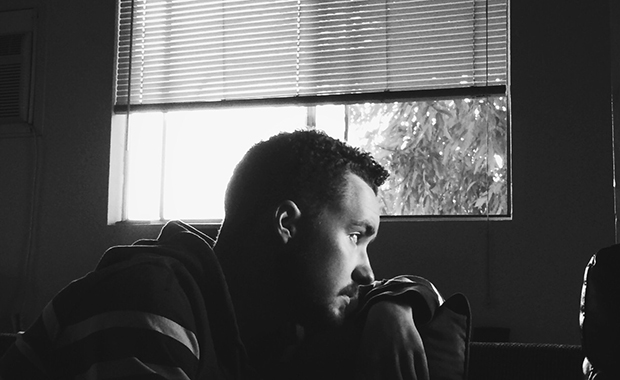Life
The 9 Question Exercise Which Will Help You Prioritize What Matters Most

You’re busy, I get it. If you’re like me, you’re constantly jumping from one activity to the next. From one commitment to another, you barely have enough time to think, let alone ask yourself the meaningful questions that will help you drive your career forward or lift your business to the next level. Nonetheless, you owe it to yourself and those around you to take the time to clearly define your goals and your aspirations if you are going to make real progress in any direction.
If you’re caught in the race or just trying to keep up with the Joneses, take it upon yourself to ask these questions. Take a few hours to sit down and write out the answers to these questions. If you’re working as part of a team, consider asking these questions as a group and starting a discussion around them.
Here are the 9 questions you need to be asking yourself on a consistent basis:
1. Where will your future growth come from?
This can relate to your business or your personal life. Consider whether you are in a place to grow emotionally, spiritually, or intellectually. Where will you have the greatest opportunity to grow? What form will this growth take?
2. How do you think your current strategy is going to change, based on emerging trends such as… [fill in the blank]?
Everyone experiences change. You are influenced by different things in different ways, and you have to be ready to face those changes by adjusting your goals and aspirations.
3. Why have you been successful so far? How will these reasons for success change in the future?
Consider what you have done which has worked well in the past and look at ways in which this might not work in the future. It is important to realize what has worked in the past may not always work in the future, so consider ways you may have to shift your thinking to address future goals.
“Every day, you reinvent yourself. You’re always in motion. But you decide every day: forward or backward.” – James Altucher
4. If you had more money, time or resources, how would you invest them to reach your goals more quickly or more effectively?
Sometimes it is valuable to consider what you would do if you had the option to invest more capital or resources into a project or a plan. Think about what you would do if you had all the time and money in the world. How would that affect your decisions and your next steps?
5. Are there things you can stop doing or place less emphasis on?
Consider how you spend your time currently. Are there things you do that don’t provide a return on investment? Are there things that you do which hinder your ability to get more done? Think about the habits you have and the people you spend time with. Where is there room to adjust or shift how you spend your time?
6. What would you ask for if you were not afraid of getting “no” as an answer?
Most of us avoid taking action or moving towards our goals because we are afraid of being told “no” or rejected in some way. Rejection happens to everyone, and we won’t be able to put it off simply by avoiding action. Most often, the things that you are afraid of doing because you may receive a “no” response are the things you really should do.
7. As you think about the future of your career, your business or the project you’re working on, what are you most excited about?
Too often, we are so caught up in the minutiae of a day-to-day routine that we forget the reason we are doing something in the first place. Think about why you are most excited about something, and why you have started down a certain path.
“What’s money? A man is a success if he gets up in the morning and goes to bed at night and in between does what he wants to do.” – Bob Dylan
8. As you think about the future, what are you most worried about?
It is likely that one thing getting in the way of you accomplishing your goals is the worry that you will fail to meet expectations. Take a closer look at what you are most worried about and try to understand the reasons for those worries. Often, the worries are unfounded, and you may be able to alleviate those worries through sheer force of will.
9. What are your dreams for the future?
This is one of the more challenging questions you will be asked to answer, but it is still incredibly important. Consider your dreams for the future, not just for this project or business or activity, but your long term dreams. What do you want your life to represent? What do you want your mark to be on the world?
The more detail you’re able to put into the responses to these questions, the more you will be able to create a strategy for how to effectively adjust and reach your goals. Take those 2 or 3 hours this month to write out your responses to these questions, and I assure you it will make a tremendous difference in your life and how you think about your aspirations.
Which one of these questions has made the most profound impact on your life? Comment below and let us know!
Life
Why Moving to a New City Can Change Your Mindset
Discover how moving to a new city boosts neuroplasticity, builds resilience, and reshapes your mindset

Relocation is always a challenge. Rebuilding and restarting your life requires you to step outside of your comfort zone. (more…)
Change Your Mindset
The Hidden Reason You Can’t Stay Consistent
If motivation keeps failing you, the real issue isn’t discipline. It’s the identity shaping your habits and long-term success.

Success often looks like a time-management problem. You buy a planner, set reminders, and hope that next week will be different. For a few days, it works. Then stress hits, motivation drops, and old patterns return. (more…)
Did You Know
How Skilled Migrants Are Building Successful Careers After Moving Countries
Behind every successful skilled migrant career is a mix of resilience, strategy, and navigating systems built for locals.

Moving to a new country for work is exciting, but it can also be unnerving. Skilled migrants leave behind familiar systems, networks, and support to pursue better job opportunities and a better future for their families. (more…)
-

 Business4 weeks ago
Business4 weeks agoWhy Entrepreneurs Should Care About AI Automation Testing
-

 Business4 weeks ago
Business4 weeks agoWhat Every Business Owner Should Know Before Investing in API Integration
-

 Did You Know4 weeks ago
Did You Know4 weeks agoThe SEO Traps Even Experienced Marketers Fall Into
-

 Business4 weeks ago
Business4 weeks agoWhy Smart Entrepreneurs Are Quietly Buying Gold and Silver
-

 Business3 weeks ago
Business3 weeks agoHow Smart Brands Use Instagram Data to Outperform Competitors
-

 Business3 weeks ago
Business3 weeks agoThe Paradox of Modern Work: Can Tech Make Us More Human?
-

 Change Your Mindset2 weeks ago
Change Your Mindset2 weeks agoThe Hidden Reason You Can’t Stay Consistent
-

 Entrepreneurs1 week ago
Entrepreneurs1 week agoThe Six Pillars That Ground Purpose-Driven Leadership (The Berenyi Life Blueprint)






























2 Comments